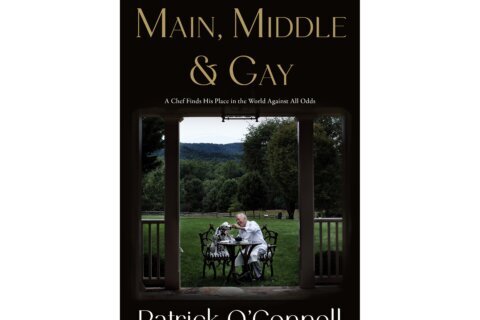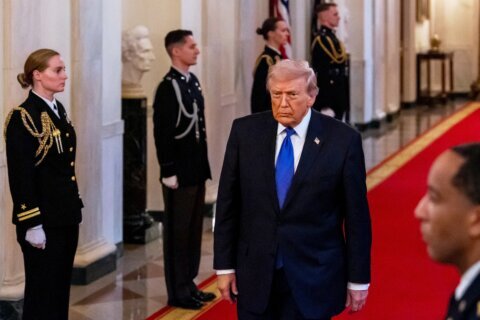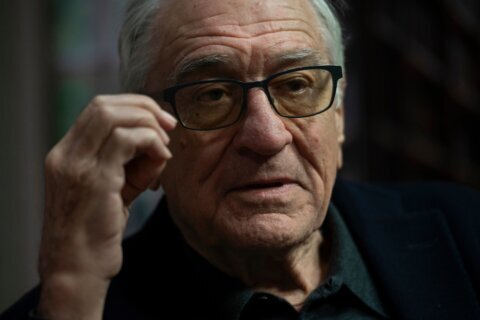WASHINGTON — In the age of John F. Kennedy, extra marital affairs were swept under the rug. In the age of Bill Clinton, they were a public stain on the office. And in the age of Donald Trump, our culture has bizarrely become desensitized to reports of hush money payments.
Through it all, few people remember that the real fulcrum in our discourse of political sex scandals was the derailed 1988 presidential campaign of Sen. Gary Hart, whose demise is chronicled in the new biopic “The Front Runner,” which hits D.C. movie theaters this Friday.
“This movie is about a moment in ’88 when everything changes,” screenwriter Jay Carson told WTOP in a filmmaker roundtable. “You have the confluence of a number of events that cause the press, the operatives, the candidate and the voters to behave in a completely different way. Mostly, it’s a gripping human story that captures a moment where a guy goes from going to be the next president, then five days later, he’s never going to work in politics again.”
Based on Matt Bai’s book “All the Truth Is Out: The Week Politics Went Tabloid” (2014), the movie opens with Hart confidently the Democratic Party’s front-runner to challenge then Republican Vice President George H.W. Bush for the White House. Denying rumors of an extramarital affair, Hart defiantly challenges the press to tail him, which backfires as two Miami Herald reporters stake out his D.C. row house and catch him with mistress Donna Rice.
“At the end of 2002, I was writing with New York Times Magazine and I met Hart doing a piece about him,” Bai said. “The more I thought about it and chewed over it in the years after, I thought there was maybe a connection we missed between that moment and what happened afterward and decided I wanted to write a book about it. It was a counterintuitive idea, but I think events have borne out some of that relevance. … I think it’s a story people need to hear.”
Carson and Bai co-write the script with director Jason Reitman of “Juno” and “Up in the Air.”
“There’s a reason why we enjoy stories and the Hart story is a good one,” Reitman told WTOP. “There’s a reason why Matt Bai was drawn to this from the get go, there’s a reason why Jay Carson immediately said, ‘Man, that’s a movie,’ and there’s a reason I felt the same way the first time I heard the ‘Radio Lab’ piece on Matt Bai’s book. … The question is: How do we handle this on a human level (and) what is important when it comes to our job as voters?”
The humanity is provided by Hugh Jackman, showing his range as the stoic yet conflicted Hart.
“Hugh was the perfect Gary Hart,” producer Helen Estabrook said. “We have this man (Hart) who by all accounts is a real enigma, so you take this guy we’re used to having such access to in ‘The Greatest Showman,’ ‘Wolverine’ … to utilize Hugh’s inherent humanity. … Jason is one of the best people at casting in the business … taking people you’ve seen before do incredible things, and his ability to know they can do something you haven’t quite seen before.”
Reitman cleverly populates his supporting cast with familiar collaborators, casting “Up in the Air” alum Vera Farmiga as Hart’s wife and “Juno” alum J.K. Simmons as Hart’s campaign chair.
“If anything, it’s a moment for me to stop and think about how damn lucky I am,” Reitman said. “I get to work with Hugh Jackman and Vera Farmiga. These are all people who make me look a lot better than I am at doing my job and are a joy to work with.”
Keep an eye on Sara Paxton, who pulls surprising sympathy out of the often vilified Rice.
“So many people who knew the story had very interesting misconceptions,” Estabrook said. “They remembered the picture, they remembered things very simplistic, and it’s like, no, these were people. They were dealing with their lives and every single person had their own story going on. It was important to show all aspects and how these decisions that people were making at the highest level, how that reverberated (through) all the people it could affect.”
It’s just one of the ways audiences are forced to engage rather than passively watch, as Reitman intentionally plants microphones on countless characters talking over each other.
“We looked to filmmakers like Robert Altman and Michael Ritchie, who we love,” Reitman said. “We watched ‘The Candidate’ very early on … as a north star in its tone, style and shooting preference. … Characters are always talking over each other [and] there’s always more than one thing to look at. … So the audience experience hopefully is that there’s a lot coming at them and they’re forced to make a choice: What conversation do you want to listen to?”
This starts with a 2 1/2 minute opening shot and continues all the way to the final shot.
“You’re watching a marriage try to hold on in the midst of a hurricane and simultaneously you’re watching a man leave politics,” Reitman said. “We’re contrasting these two images simultaneously and asking the audience: What do you want to look at? What do you want to listen to? … (They’re) forced to make the same decisions cinematically that we were asking them to make philosophically: What is important? What is entertaining? What is relevant?”
It’s the latest proof of Reitman’s growth, having already directed one of the year’s 10 best films in “Tully,” in which he reunited with Oscar-winning “Juno” screenwriter Diablo Cody.
“It’s been a very interesting year to have these two films because they tonally couldn’t be more different,” Reitman said. “The only reason I am capable of doing this is because of a woman named Diablo Cody. … Then I meet two guys, Matt Bai and Jay Carson, (who) are swimming the depths and I am in the kiddie pool. … Every filmmaker comes to the table with ideas, some good, some bad. I’m the same. I just get to work with really fantastic people.”
As we await his next career step, we gladly ask the same closing line as “The Candidate.”
“What do we do now?”
Hear our full chat with Jason Reitman, Matt Bai, Jay Carson and Helen Estabrook below:








